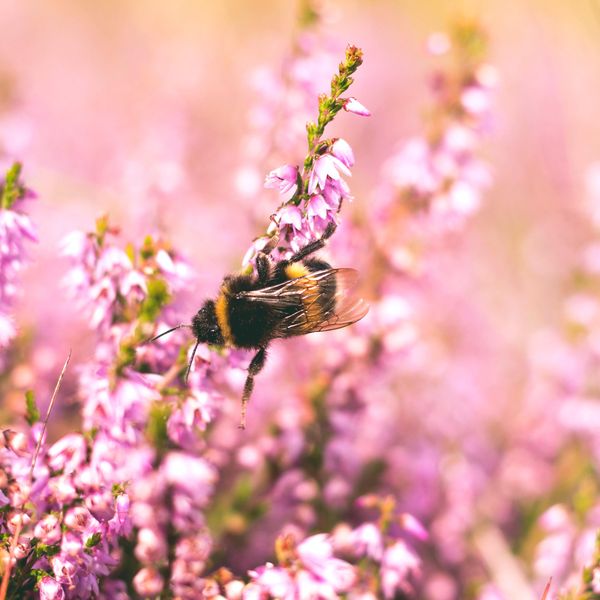
As bees continue to decline, scientists have found many contributors, including climate change and landscape transformation. Now they’ve added another one: glyphosate.
Over the past few years, glyphosate, an herbicide most known as the active ingredient in Roundup that’s used to regulate plant growth and kill off unwanted plant species, has become a subject of public concern as it is unclear whether or not it is harmful to the health of humans and other animal organisms.
First registered for use in the United States in 1974, glyphosate is applied annually to 298 million acres, one fourth of U.S. agricultural land, making it one of the most commonly used herbicides.
A recent study earlier this month found that exposure to glyphosate can impair a bumblebee’s ability to maintain hive temperature, which is critical for bees’ ability to forage and reproduce to increase colony size.
Anja Weidenmüller, who led the study, has been researching bumblebee thermoregulation behavior for more than a decade. For this study, Weidenmüller prioritized the long term effects that glyphosate has on bumblebee behavior rather than looking at the immediate 24-48 hour time frame, normally used to determine if glyphosate is immediately lethal for bumblebees.
Contrary to many lab studies, the bumblebees were studied in environments of resource limitation and environmental stressors as most organisms would experience in the natural world. In fact, as bumblebees have declined, scientists have found there are multiple factors that play into this decline including climate change, landscape transformation, and harmful chemicals used on agriculture, such as pesticides. As a result, bumble bees have experienced a severe decline in recent decades: a 2021 U.S. Fish and Wildlife Service report found that over the past 20 years populations have disappeared or become rare in 16 states, and observations of the bees have declined by about 90%.
“When those [things] come together, an effect of an insecticide or pesticide may be very different than what usually tests these organisms in laboratories,” Weidenmüller told EHN.
To imitate this complex environment, the researchers placed a brood of bees in the lab and exposed the bees to stressors such as glyphosate, and limited their sugar water to reproduce the resource limitations that they would be exposed to in agricultural landscapes.
This study found that when exposed to glyphosate for just four hours, a bumblebee’s ability to maintain brood temperature decreased by 25% when resources were limited, which could affect the health of bees and impair their ability to reproduce, leading to a decline in population.
“[The study] highlights the importance of these multiple stressors for bees, and for their health; those risk periods of resource limitation are often not accounted for in laboratory settings,” Emily May, Pollinator Conservation Specialist and Agricultural Lead at Xerces Society, told EHN.
Biodiversity conservation
Extensive research has found that the conservation of bumblebees, and bees in general, is crucial for the survival of crops and wild ecosystems. Bees are effective pollinators and have been found to pollinate 80% of the world’s flowering plants, including food crops.
“We really need them to be able to have these thriving systems, both for our food production and for wild ecosystems as well,” said May.
Food systems are largely pollinator dependent and the conservation of biodiversity can be more beneficial long term for human health and agriculture production than chemicals used in modern agriculture for food yield and pest control, researchers have found.
“Agrichemicals might not actually be all that important for increasing yields,” said James Crall, professor at the University of Wisconsin-Madison, researches bees and plant-pollinator interactions. Crop pollination has been found to improve produce yield more than increased fertilization.
Although glyphosate is currently approved for use in the U.S., at least 43 countries have banned or restricted the use of products containing glyphosate. Although there is research focused on the effects of glyphosate on humans and other organisms, such as the U.S. Department of Health’s Agency for Toxic Substances acknowledgement of links between glyphosate and cancer, there are still potential long-term effects of which we may not yet be aware.

